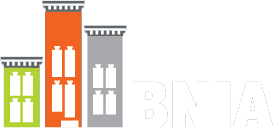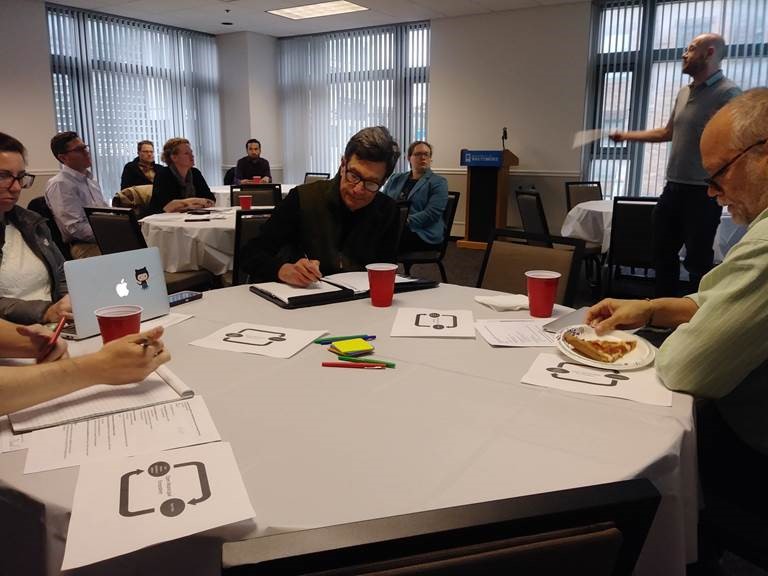Data-Driven Decision Making in West Baltimore for Smart Technology Planning
See the Full Report Smart Cities Data Use Summary Final Draft
About the Project
Beginning in 2017, the Baltimore “Smart Cities Initiative” led by the University of Maryland’s National Center for Smart Growth through a grant from the National Science Foundation sought to explore how smart technology could improve quality of life in Baltimore. The Baltimore Neighborhood Indicators Alliance (BNIA-JFI) at the University of Baltimore along with other universities including the Center for Government Excellence (GovEx) at Johns Hopkins University and Morgan State University collaborated with community-based partners in West Baltimore to understand how investments in smart cities technology could improve the lives of residents in low-income neighborhoods and outline a roadmap for city policymakers using the latest research in equity, health and urban planning.
The project team worked in three primary groups focused around issues of data access and use, community engagement, and technology strategies and innovations. This report presents the findings of the data access and use group.
The Approach
BNIA-JFI coordinated a series of two workshops with community organizations in West Baltimore, the Heritage Crossing Community and the State Center Neighborhoods Alliance. The first workshop aimed at showing communities what data exists about their neighborhoods and invited attendees to identify issues of concern that may or may not relate to smart technologies. In the second session, BNIA-JFI staff helped community members use and explore open data portals that provided insights into the concerns expressed in the first meeting. Several resources were curated specifically for each community as part of the process
Key Takeaways
With or without the introduction of new smart technology in Baltimore, the engagement process used for this project revealed that several data sets and webtools currently exist with very limited community-based knowledge or training on how to access the information to address specific issues. The implication is that as new technologies are potentially introduced, special attention needs to be paid to the adaption and access to any resulting data so that communities can continue to learn about how to use the information to improve quality of life.
- Engage with community members early to learn about challenges they see in their neighborhoods so that new technologies in neighborhoods can support the goals of the community
- Ensure new technologies provide community members access to information about their neighborhood ideally within existing data portals, or allow community members the opportunity to provide feedback to data sharing platforms about what they would like to see made available
- Establish open data protocols with vendors or city government to allow residents and stakeholders to evaluate the effectiveness of new technology community
Creating a Crowdsourced Repository of Open Data Webtools
Given the proliferation of webtools and open data portals that have been created by BNIA-JFI, higher educational institutions, governmental agencies, and civic technologists eager to use their technology skills to address Baltimore’s quality of life concerns, a group of partners came together to establish the “Crowdsource Data Tool Collective for Baltimore”. The group coordinated an event at the annual Baltimore Data Day workshop on July 13,2018 and launched an online resource for everyone to view and keep track of new and existing applications using open data to improve the quality of life in Baltimore (https://citydata.tools). The aim is to continue to crowdsource, open compilation of existing tools that can be used by communities and enhanced by civic technologists and others at future events.



